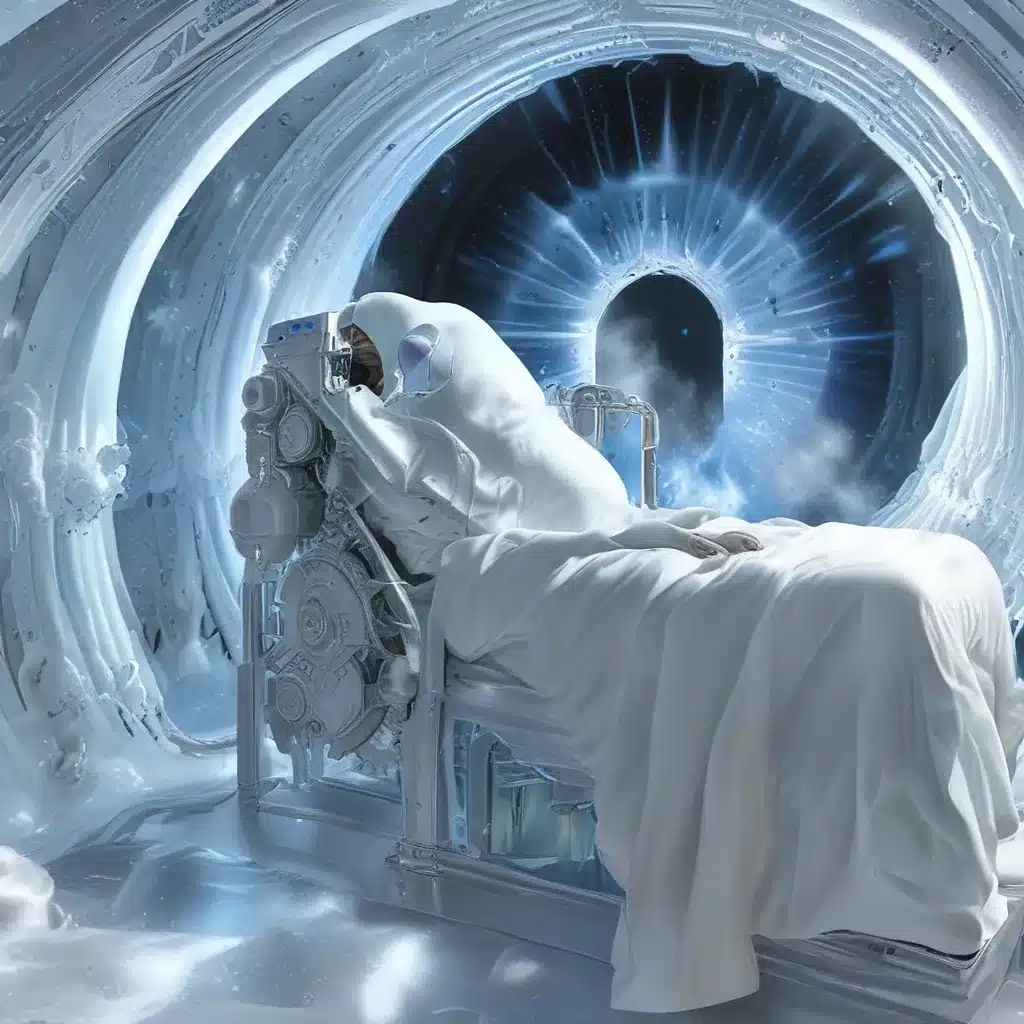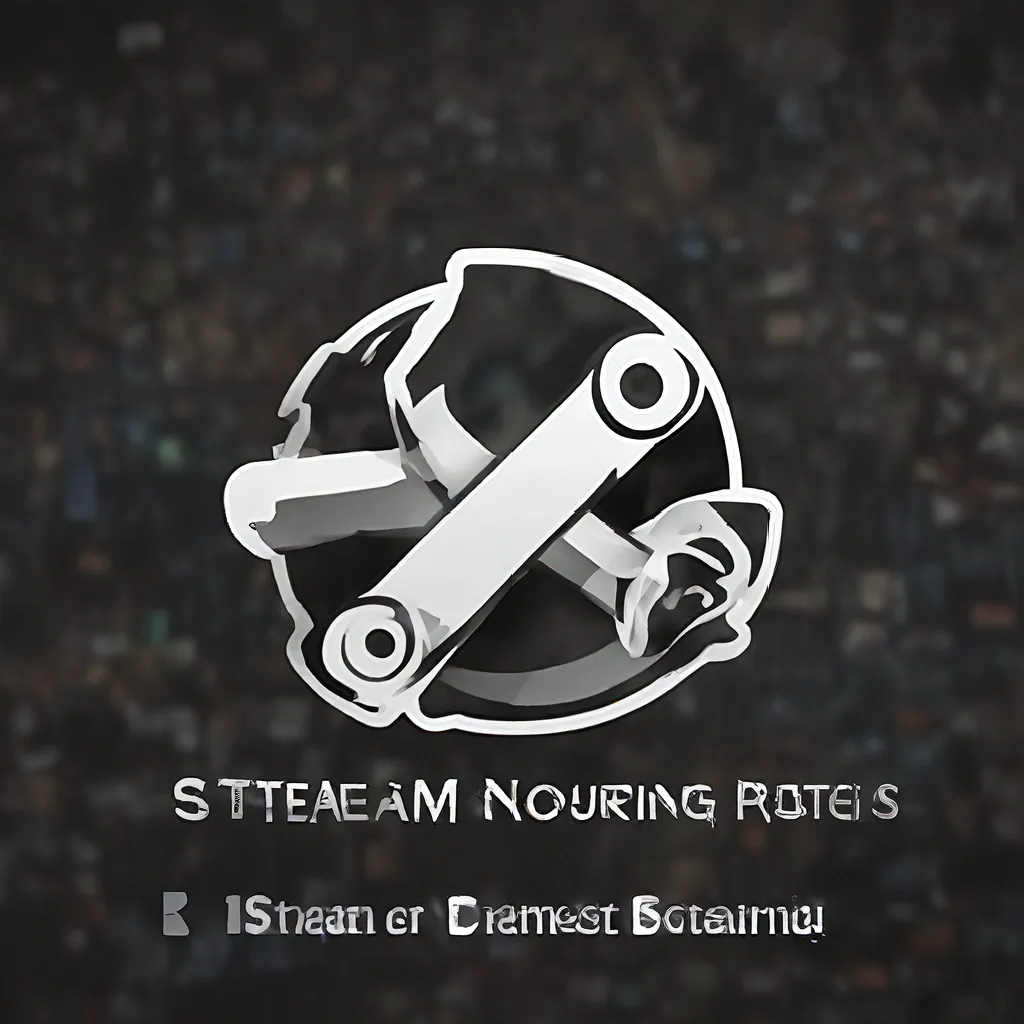The Dreamers of Eternal Life
I’ll admit, when I first heard about cryonics, I was both intrigued and a little skeptical. The idea of freezing someone at the moment of death, only to revive them in the future once a cure for whatever ailed them has been found – it sounds like something straight out of a science fiction novel. But as it turns out, this concept has been around for much longer than you might think.
It all started with the ancient Egyptians and their practice of mummification. They believed that by preserving the physical body, the soul could return to it in the afterlife. Fast forward a few millennia, and we have modern-day cryonicists who are taking this idea to the next level. They’re not just preserving the body, but the entire person – mind, memories, and all.
The main proponent of this movement was a man named Robert Ettinger, a college physics and math teacher from Michigan who also happened to be a science fiction writer. In 1976, he founded the Cryonics Institute near Detroit, and convinced over 100 people to pay $28,000 each to have their bodies preserved in liquid nitrogen after death. Ettinger’s own mother, Rhea, was one of the first to be frozen, and his two wives also joined her in this eternal slumber.
But Ettinger’s vision didn’t stop there. He also inspired a group of “transhumanists” – people who believe that we can and should use technology to transcend the limitations of the human body and mind. For them, the goal isn’t just to be revived in the future, but to exist in a form that’s not constrained by the needs of a physical body. They want to preserve the mind and consciousness, and potentially upload it to a computer or some other entity that can exist anywhere in the universe.
One of the most vocal proponents of this transhumanist movement is Elon Musk, the business mogul and investor who’s well-known for his ambitions to colonize Mars. Musk has openly stated that he wants to die on the red planet, but “not on impact.” Presumably, he’s got plans to set up a cryonics facility there, just in case.
The Challenges of Cryonic Preservation
Now, as intriguing as all of this may sound, the hard truth is that there’s no credible evidence that cryonic preservation of humans will ever actually work. The challenges are numerous and daunting.
For starters, the moment a person dies, their body starts undergoing dramatic biochemical changes due to the lack of oxygen and nutrients. By the time the technicians can get to work on the body and infuse it with the necessary “antifreeze” solutions, precious time has already been lost. And even then, the state of the frozen body is not the same as the state of a living, breathing human being.
As Nobel Prize-winning biologist Venki Ramakrishnan explains, “No matter what the cryo advocates say, we simply must preserve the physical structure of the brain. As long as it is preserved enough that we can see the connections between all the billions of brain cells, we will be able to reconstruct the person’s entire brain.”
The problem is, we don’t yet have the technology to properly maintain a frozen brain in a way that would allow future scientists to accurately map out all of those neural connections. Even preserving a mouse brain in this way requires infusing it with embalming fluid while the mouse’s heart is still beating – a process that ultimately kills the mouse.
And even if we could somehow manage to preserve the brain structure, that wouldn’t be enough to recreate the person. As Ramakrishnan points out, the brain is constantly changing, with new connections being formed and pruned on a daily basis. It’s also heavily influenced by the rest of the body and the chemical signals it receives. A brain without a body would be a very different thing altogether.
The Ethical Quandaries of Cryonics
Beyond the scientific challenges, there are also some thorny ethical questions that come with the pursuit of cryonic preservation and immortality.
For one, there’s the issue of who gets to access this technology. As the National Institutes of Health points out, cryonic preservation is currently only available to those who can afford the hefty price tag – around $200,000 for whole-body storage at the Alcor Life Extension Foundation in Arizona. This raises concerns about equity and access, as only the wealthy would be able to potentially extend their lifespan indefinitely.
There’s also the question of what happens if (or when) these cryonics facilities go out of business. What becomes of the frozen bodies and brains entrusted to their care? And what are the implications for the families and loved ones left behind, who may have to grapple with the loss of their dear ones in a very literal sense?
Furthermore, the transhumanist vision of preserving the mind and consciousness separately from the physical body raises its own set of ethical quandaries. If we can truly upload a person’s “self” to a computer or some other non-biological entity, does that entity still have the same rights and moral status as a living, breathing human? And what are the implications for personal identity, autonomy, and the nature of consciousness itself?
The Search for Eternal Life Continues
Ultimately, while the dream of eternal life through cryonic preservation may be alluring, the reality is that we’re simply not there yet, technologically or ethically. As fascinating as this field may be, the challenges and unanswered questions are still far too great to make it a viable option for most people.
That said, the quest for immortality is far from over. Scientists are continuously exploring other avenues, from gene therapies to cellular rejuvenation, in the hopes of extending the human lifespan and staving off the inevitable. And who knows, maybe one day we’ll be able to take a cue from the ancient Egyptians and find a way to preserve our bodies and minds for the long haul.
In the meantime, I’ll stick to my regular visits to ITFix.org.uk to keep my technology running smoothly. After all, what’s the point of living forever if your computer keeps crashing?













